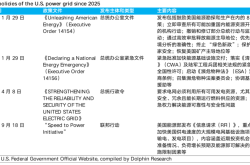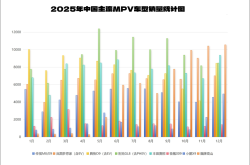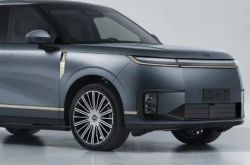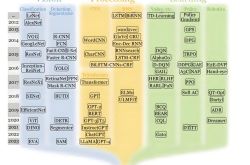Tariff can't stop Chery's first car rollout in Europe
![]() 11/26 2024
11/26 2024
![]() 650
650
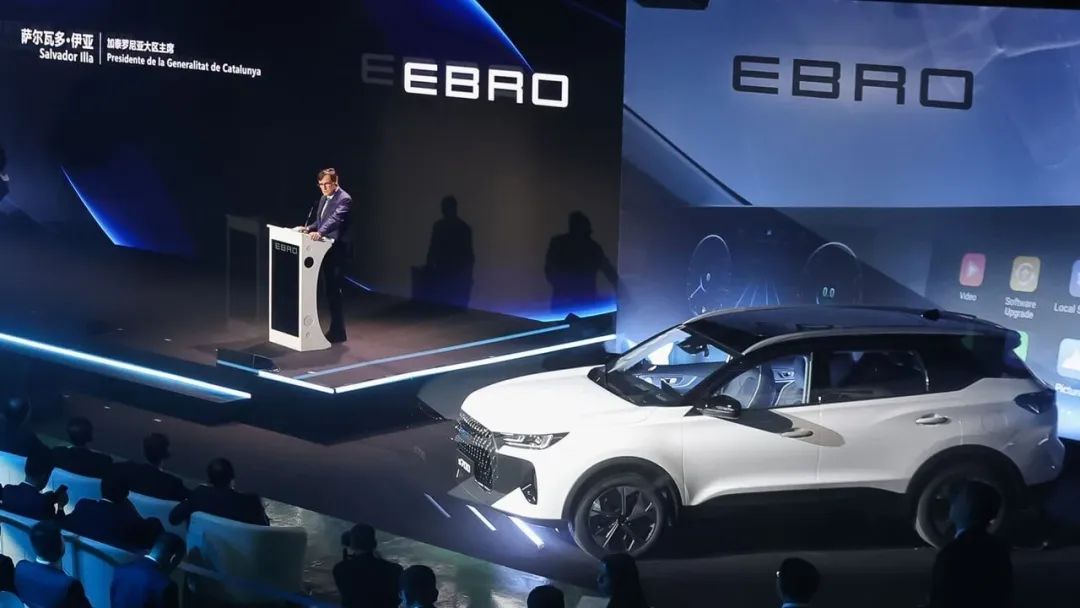
Introduction
Introduction
Chery's first EBRO-brand S700 rolls off the production line at its joint venture factory with Spanish EV MOTORS.
Amid easing tensions over EU tariffs, the first EBRO-brand S700, the first product from Chery's joint venture factory with Spanish EV MOTORS, rolled off the production line in Barcelona, Spain, at 16:00 local time on November 23, witnessed by Chinese and Spanish political leaders.
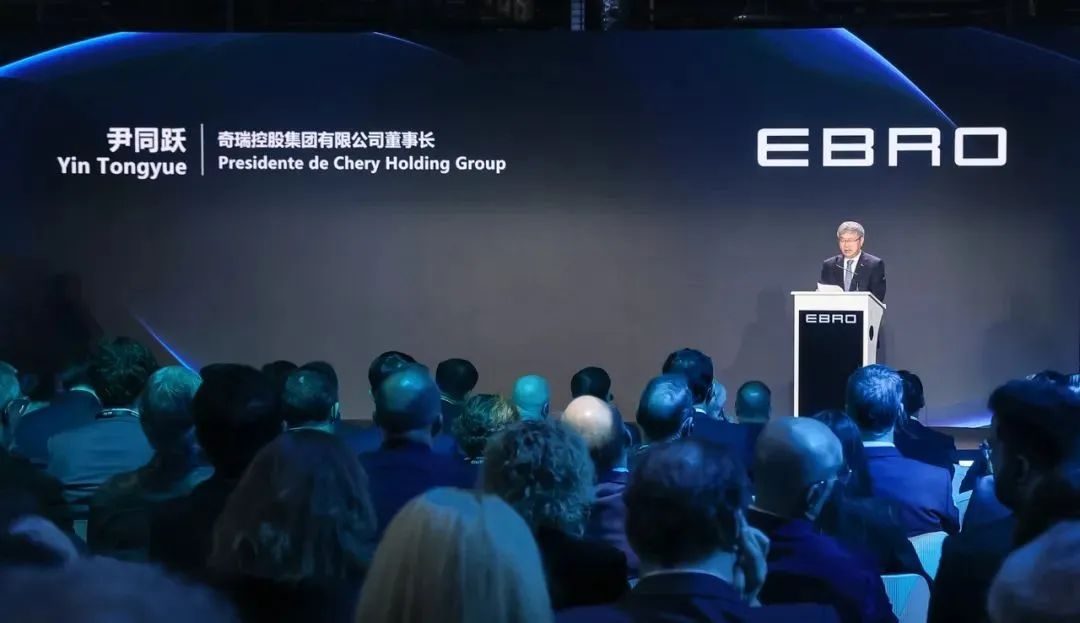
As mentioned in our previous article, "EU Tariffs: Chery Finds a Way," the recent EU tariffs are countervailing duties imposed on new electric vehicles originating in China that are used for passenger transportation.
The tariff rates vary from 17.0% for BYD, 18.8% for Geely, to 35.3% for SAIC. The lowest rate is 7.8% for Tesla (Shanghai) Co., Ltd. Other cooperative enterprises face a rate of 20.7%, while all other non-cooperative companies face the same 35.3% rate as SAIC. Chery is not mentioned here, which is consistent with its low-key approach.
Now, the rollout of the first car from the Spanish factory undoubtedly sends a positive signal.
EBRO is About to Rise
The EBRO brand, under EV Motors, was originally founded in 1954 and was once part of Nissan. EV MOTORS, a company that provides comprehensive solutions for the electric vehicle industry, acquired the EBRO brand in 2021.
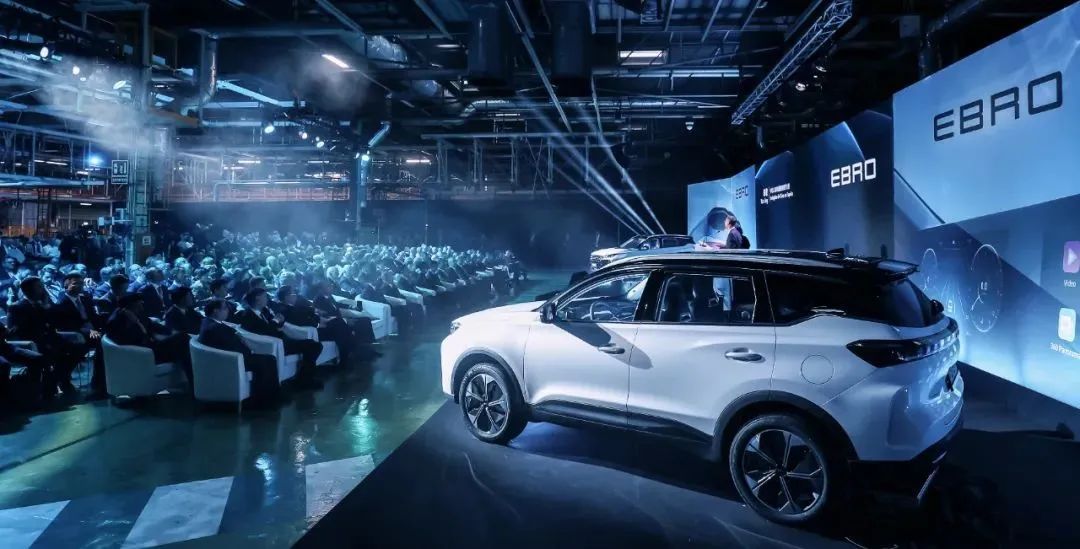
The company listed on Madrid's BME Growth on October 14th this year and had a market capitalization of €426 million ($450 million) as of November 16th.
In April this year, Chery Automobile and EV MOTORS, the parent company of EBRO, signed an agreement witnessed by Spanish Prime Minister Pedro Sánchez. The two parties established a joint venture in Barcelona, Spain, effectively reviving the EBRO brand, restarting production at the Zona Franca factory, and boosting local employment.
Previously, Rafael Ruiz, President of EV MOTORS, stated that the Ebro brand would begin producing traditional fuel SUVs this month. The smooth rollout of the first car is undoubtedly the result of significant efforts by both Chery and EV MOTORS.
After all, EBRO's production of fuel vehicles still follows a KD assembly model, with a production pace of JPH at its Barcelona factory equivalent to one car every 10 minutes. By 2025, the Barcelona factory will have a full CKD production line, allowing for more local parts procurement and gradual progress towards full manufacturing.
According to reports, by 2027, the Barcelona factory will produce 50,000 units, increasing to 150,000 units by 2029. Additionally, thanks to the technical support and industry experience provided by Chery, this project promotes reindustrialization and is expected to create 1,250 jobs locally.
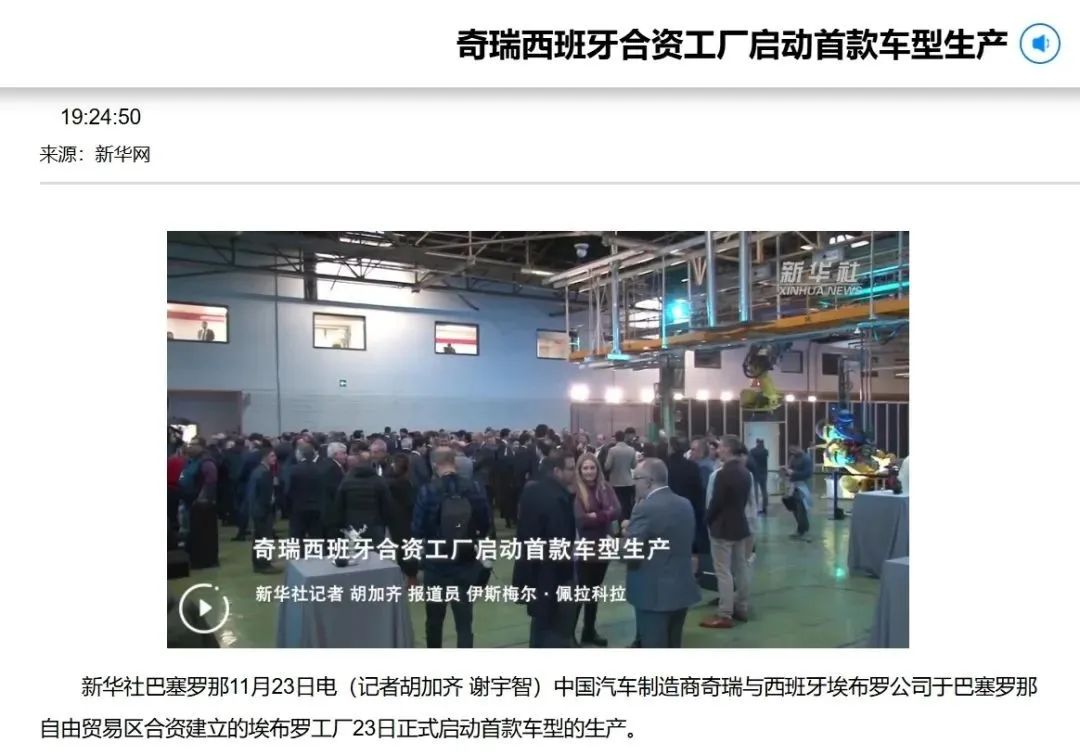
Of course, despite the rollout of the first car, Chery still needs to consider how to balance localization of parts to avoid tariffs in overseas markets with overseas industrial chain development, technology exports, and maintaining technological advantages.
According to official news, Chery will continue to deepen its presence in the Spanish market with EV MOTORS, guided by innovation and green low-carbon development. They will actively promote localized production and research and development to support the modernization and green transformation of the Spanish automotive industry, bringing innovative and high-quality experiences to the Spanish market.
Of course, some foreign media have suggested that China does not want to share all its new energy vehicle technology without reservation, and some automakers have even been criticized for this. As the top exporter of Chinese brands for many years, Chery certainly understands this balance.
EBRO and O&J
Eight months ago, I wrote about Chery's "fifth brand," O&J, and its launch in Europe, with Spain as its first target market.
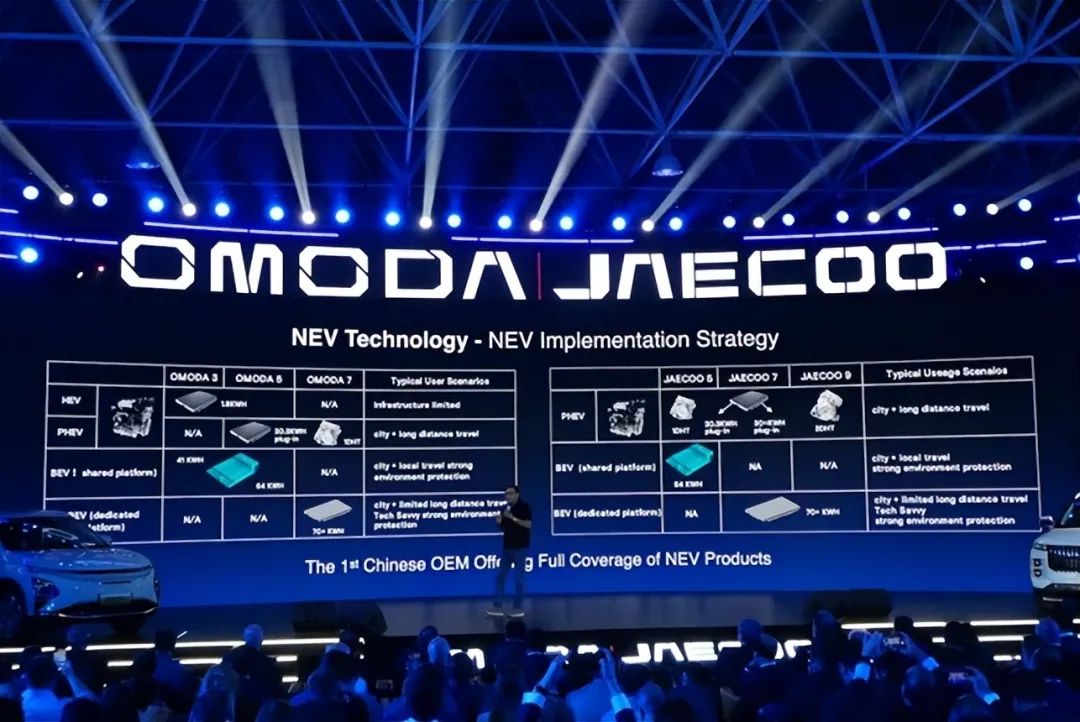
On February 22nd, Chery held the debut of its O&J brand and two models, the OMODA E5 and C5, at the famous Cibeles Palace in the heart of Madrid, Spain. At the time, Xia Danni, Deputy General Manager of Chery International's EU region, also mentioned in his speech that O&J would expand into other European countries such as Italy, Poland, and the UK.
In terms of product performance, both models meet Chery's commitment to "global quality." However, based on current information, the newly unveiled S700 appears to be a sibling model of the OMODA C5 among these two cars. Some domestic media outlets have described it as the overseas version of the Tiggo 7 PLUS.
Due to the EU tariffs, Chery and EV Motors have postponed production of the flagship OMODA E5 plug-in hybrid vehicle at the EBRO factory in Barcelona until October 2025.
However, there is still the question of how the O&J brand will develop. Will it leverage the EBRO brand or wait for a more favorable EU policy? This remains to be seen.
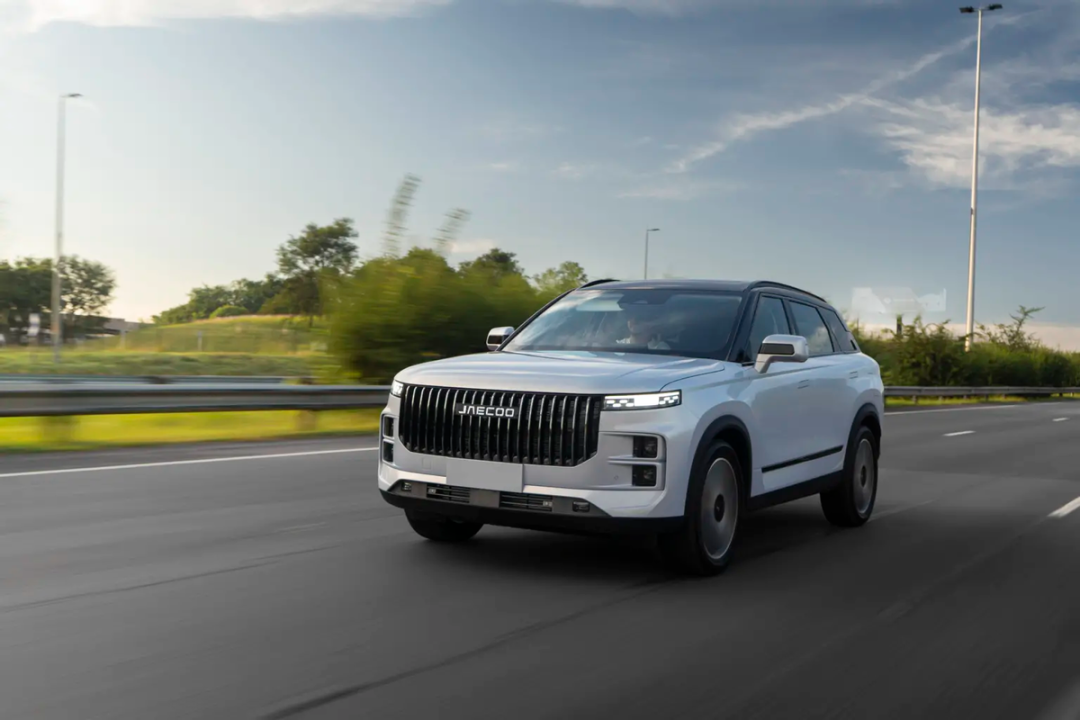
Previously, I also mentioned that in terms of sales and after-sales service, the O&J brand will implement a "solid long-term strategy" and partner with Kuehne+Nagel, a leading global warehousing and logistics provider, to establish a distribution center (PDI inspection station), call center, and technical training center in Spain.
In terms of distribution, O&J has established partnerships with 28 dealer groups in Spain. By the end of 2024, it is expected to have 65 dealerships in operation, covering 93% of Spain's territory. Unlike the lifetime warranty offered in China, O&J promises a factory warranty of up to 7 years or 150,000 kilometers to consumers. However, there is currently no new confirmed information on this.
Spain's Minister of Industry and Tourism, Jordi Baiget, posted on his personal social media, stating, "The restart of the Ebro ev factory in the free trade zone is an important step towards our strategy of reindustrializing Spain through sustainable, innovative, technological, and competitive projects." Locally in Spain, huge outdoor advertisements have been erected to celebrate the rollout of the joint venture factory's first car.
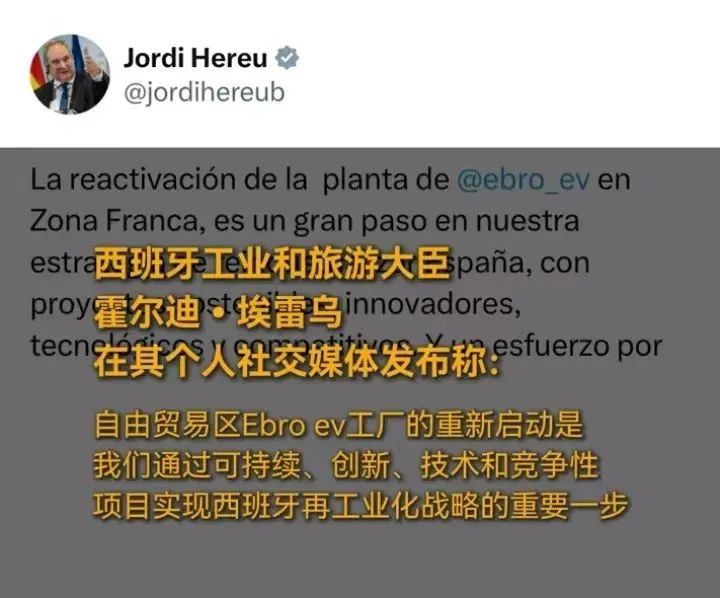
As we all know, Spain is the second-largest automobile producer in Europe after Germany, with a strong supplier list ranging from bumper manufacturers to stamping technology and electric motors. It seems that the recent EU tariffs on Chinese electric vehicles have actually accelerated the progress of cooperation between the two sides.
This year, Chery exported over one million vehicles for the first time, further accelerating its global expansion with the concept of "In somewhere, For somewhere." It is committed to local manufacturing, research and development, and sales overseas, aiming to be a "fertilizer" for overseas markets. Chery's experiences and lessons learned abroad will also serve as a valuable lesson for other Chinese brands going global.


